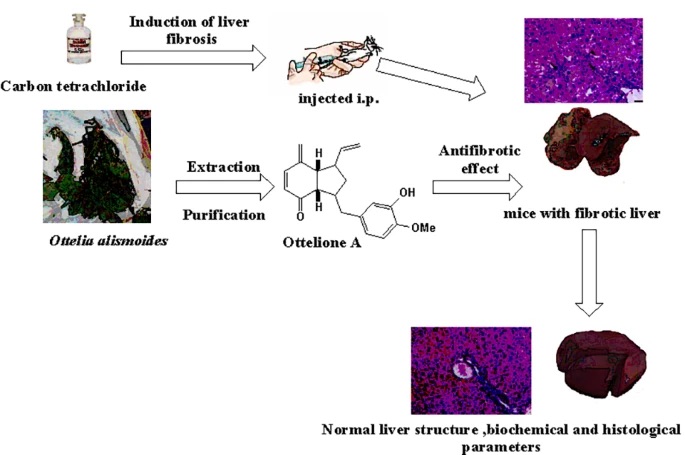Zahran, R. F.; EL-sayed, L. M.; Hoye, T. R.; Ayyad, S-E. N. Appl. Biochem. Biotechnol. 2023, 195, 5966–5979.
Background Some herbal natural products play an important role in protecting organisms from the toxic effect of some xenobiotics. The present study was designed to evaluate the potential therapeutic effects of Ottelione A (OTTE) against carbon tetrachloride(CCl4 )-induced toxicity in mice.
Methods Adult male Swiss albino mice were divided into six groups: group I was used as a normal control received olive oil; group II received DMSO; group III received OTTE; group IV received CCl 4 in olive oil, (injected i.p) 3 times/week for 6 weeks; group V received the same CCl 4 regimen as group IV followed by OTTE injected for 15 days, and group VI first received OTTE injected for 15 days followed by the same CCl 4 regimen as group IV. Some biochemical and histological parameters were investigated.
Results Our results showed that the administration of CCl 4 caused hepatotoxicity, as monitored by the significant increase in biochemical parameters concerning the olive oil group. Treatment with OTTE appeare d to be effective against hepatotoxic and liver changes induced by CCl4 , as evidenced by the improvement of the same parameters.
Conclusion Ottelione A (OTTE) has good antioxidant and therapeutic properties, which can help in preventing CCl4 -induced hepatotoxicity in both pre-treatment and post-treatment modes.
